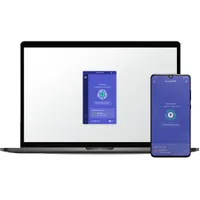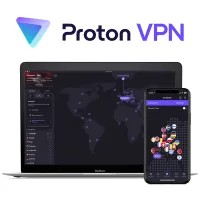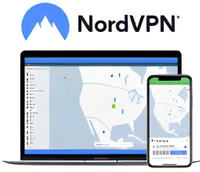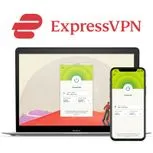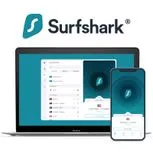Are free VPNs safe and can they be trusted?
Nothing in life is ever truly free

One of the biggest problems with VPNs is that when you search for a VPN through Google, or through the App or Play store, you find literally dozens of options. How do you know which are safe and which are untrustworthy? Can you trust your VPN provider not to put malware on your device or harvest your data to sell it on to advertisers? Can you be sure they aren’t keeping logs even though their marketing claims they’re a no-logs provider? Is your provider using the latest encryption to make sure that everything you do online is private or are they leaking your data like a sieve?
Here at TechRadar we’ve spent thousands of hours investigating and reviewing VPN providers, so we can make sure you pick a safe, secure and trustworthy VPN provider. We’ve picked through over a hundred different providers and narrowed it down to the selection here that we think are the safest choices around. You can learn even more about what we think are the best VPNs on the market in our Best VPNs page.
Are free VPNs safe to use?
While there are some free VPNs we think are pretty decent, and you can find a list of them here at our best free VPNs page, they just don’t compare to the paid options. With a free VPN you’ll be limited in the number of servers you can pick from, from hundreds down to usually less than a dozen, and not only will your connection speed be poor as you’ll be connecting to servers that are overloaded with other people, almost all free VPNs impose a data limit which can range from as little as 2Gb up to 10Gb or so, making them useful for browsing, but not very good at all for streaming.
There are also security concerns with free VPNs, with some of them using outdated encryption and unsafe protocols, meaning they’re not very good at a VPN’s primary function - To keep you safe online. At worst you might end up installing something that claims to be a free VPN only to find out that it’s malware designed to steal your data. While some free VPNs are funded by the provider also offering a paid service which, of course, they will try and nag you into upgrading to, many rely on selling your user data to advertisers and other third parties to remain in business.
Rather than risking a free VPN, we would always recommend you go for a premium service, you might be surprised how cheaply you can get a subscription, especially if you’re willing to sign up for a 2 or 3 year subscription. You can even try them out for free by using their money-back guarantees to make sure that it’s a good fit for you. So why not check out a premium service like the ones we recommend on our best cheap VPNs page and use the 30-day money-back guarantee to see if it is really worth it.
What are the best free VPNs?
1. The best free VPN: PrivadoVPN
While free, PrivadoVPN’s offering is no slouch when it comes to keeping you safe online. It offers both OpenVPN and WireGuard protocols, DNS and IP leak protection and even a kill-switch. You don’t get all the other useful features that a premium service would offer you, but it does an admirable job of doing the core of what a VPN should do. It even offers more servers in more countries than most other free VPNs and even supports streaming, though not torrenting.
2. The free VPN with the best data allowance: Proton VPN
Proton VPN’s free offering is one of the only providers to not have a monthly data cap, and they even offer a surprisingly large number of servers to pick from, but free users are limited to only 3 countries. It also offers 6 simultaneous connections, which is more than some paid-for VPNs and protects its users with both OpenVPN and WireGuard protocols. While it doesn’t offer unlimited data like Privacdo, it still has a quite generous monthly data allowance of 10Gb.
3. Best free VPN for torrenting: Windscribe
Windscribe is a good choice for those looking to torrent as it’s one of the only free VPNs that officially supports torrenting. It also offers a generous 10Gb a month data allowance if you’re willing to hand over your email address, only 2Gb a month if not. It’s also one of the only free VPN providers to offer advert and malware blocking in its free version, it’s even got a kill-switch and RAM-only servers, making it as secure as many premium providers.
Are paid-for VPNs safe?
Most VPNs, especially the paid ones, can be relied on to be trustworthy and to keep your data safe, but that doesn’t mean you should blindly trust them! As the proverb says, “trust, but verify”. There’s a few things to look for to make sure that the service you’re paying for is living up to its marketing claims.
- Always make sure you download any apps directly from the VPN provider's website and not through some other third party claiming to represent them. If you’re purchasing a VPN for a mobile device like a phone or tablet, then make sure that they’re verified on the store you’re purchasing from, such as the Apple App Store or Google Play and always keep an eye out for fakes!
- They should have a no-logs policy, which means they do not store any data about your online activities. Some VPN clients will store connection logs, showing when and where you connected from. Always make sure you pick a VPN provider with a verified no-logs policy and ideally one where that policy has been checked and confirmed by an independent third party.
- Ideally any provider you pick should offer what are called “obfuscated servers”. When you connect to a VPN, websites and your ISP can see that you’re connected, even if they can’t see what you’re doing. Obfuscated servers, on the other hand, hide the fact that you’re using a VPN at all! This can be a very important feature in countries where VPN usage is restricted.
- We would always advise picking a VPN provider with a known and verified track record. Companies such as NordVPN, CyberGhost, ExpressVPN and more have been in the VPN business for over a decade and have proven that they’re worth both your money and your trust that they’ll do their best to keep you safe online.
- Another advantage of paid VPNs over free, and one we think is really important, especially for beginners, is that any provider you pick has a good customer service offering. Not just a decent support site, but a dedicated phoneline and/or webchat so you can contact them directly with any issues you may have.
As well as being a safe and secure provider, there’s a number of other factors you should take into account when looking at any VPN offering, paid-for or free. You should check out things like:
Connection speeds: A slow VPN is no use to anyone and will be useless for streaming video or online gaming. Always check to see if the provider you’re considering offers good connection speeds.
Server locations: Always check to make sure that the VPN provider has servers in the countries or regions that you need access to. Many providers, for example, have limited servers in Asia, or none at all.
Number of servers: A provider with only a handful of servers will likely mean that all their connections are oversubscribed and likely to be very slow. More servers means you’re more likely to have a fast connection.
Number of simultaneous connections: An important one if you have multiple devices you want to run a VPN on. This is the limit of the number of devices you can connect to the VPN provider at the same time. This limit will range from 1 or 2 for free VPNs up to 7, 8 or even an unlimited number of devices for some paid VPNs.
Content unblocking capabilities: One of the biggest use cases for a VPN is to access content in other countries. If a VPN doesn’t work with the big streaming platforms like Hulu or Netflix then it’s going to be of limited use. Always make sure the VPN provider you pick works with the streaming service you use.
Additional features: Many paid VPN providers come with an extensive suite of additional features these days, including ad blockers, anti-virus, breach notifications and more. It’s always worth comparing the complete offerings when you pick a provider.
What are the best paid-for VPNs?
1. The best paid-for VPN: NordVPN
NordVPN is our pick for the best VPN around, especially for the security and privacy minded. It’s got more servers than any other provider and it’s even based in Panama, which means it’s not subject to any of the surveillance alliances like Five Eyes or Nine Eyes. It offers a wide range of additional security features such as a kill-switch, split tunneling and even a form of insurance for its users who fall victim to cybercrime.
2. The easiest to use paid VPN: ExpressVPN
ExpressVPN has been one of our top VPN choices for years, and that’s due to a combination of great price, wide range of features, and rock-solid security that includes AES-256 encryption and the latest VPN protocols, including its own proprietary Lightway protocol. On top of this you get a kill-switch, RAM-only servers, split-tunneling and the ability to block adverts, trackers and even adult sites if you’re concerned about your children’s access to the internet.
3. The cheapest paid-for VPN: Surfshark
Surfshark is a great choice for a secure VPN. It sports robust and reliable protocols such as OpenVPN and WireGuard, it doesn’t have any problems with DNS or WebRTC leaks, and it comes with additional features such as a kill-switch and an adblocker. It’s even got what it calls “camouflage mode” to hide that you’re using a VPN at all.
How to choose a VPN
There’s a few things to keep in mind when choosing a VPN provider so let’s take a look at them. The first is what you need to use it for. If you’re more concerned about privacy and security, then you might not be too worried about how good it is at unblocking streaming services. Your focus here would be on how good the encryption is and what other services it offers to keep you secure online such as ad blockers, anti-virus, and breach detection to protect your personal data.
On the other hand, streaming might be your thing so you want something that can reliably unblock all the major streaming platforms, or you might be in a household with a lot of devices, so you’ll want a VPN provider with a generous connection number of simultaneous connections.
Perhaps you’re going to be doing a lot of traveling, so you want a VPN that not only has a wide number of locations to pick from to ensure you always get a fast connection, you might also want the provider to have a good number of obfuscated servers, to hide the fact you’re using a VPN at all.
Is it safe to use a VPN while traveling?
As long as the country you’re in hasn’t banned or restricted the use of VPNs, it’s totally safe and legal to use them while you’re traveling and there’s a number of reasons you might want to do that. If you’re staying in a hotel, for instance, you might want that extra level of security that nobody will be snooping on your connection.
It could also be that while you’re away from home, you want to access content that’s geo-restricted such as Hulu or the BBC iPlayer so you can stay up to date with your favorite shows. Now some streaming providers do state in their terms of service that using a VPN to access content in other countries is a violation of your contract. It won’t lead to the copyright police knocking at your door if you try to access content that’s geo-blocked, but there is always the chance that they might decide to terminate your account.
If, however, you are trying to access content blocked by the government, this would probably be seen as illegal and could result in a fine or even jail time. While a VPN hides your real-life IP address and location, and encrypts your connection so people can’t see exactly what you’re doing online, it doesn’t hide the fact that you’re using a VPN.
This is why it’s important to make sure that the VPN provider you sign up with offers obfuscated servers, which conceals the fact you’re using a VPN at all if you think this might be something you ever need to worry about.
What is the most secure VPN?
With so many VPNs to pick from, and all of them making claims to be the fastest, most privacy-conscious or the most secure, it can be hard to know which ones really live up to their marketing. It’s also important to understand that security and privacy are not necessarily the same thing!
Privacy is all about keeping your online activities confidential, so that means avoiding invasive trackers and nosy marketers and advertisers who want to know everything about you so they can sell you the latest tat from Temu or Shein.
Security, on the other hand, is how well a product protects you from online threats, how well it works to stop criminals stealing your data or monitoring your connection. And while it’s likely that the most secure VPN is also going to be one that’s really good at privacy.
If you’d like to know more, then check out our most secure VPNs article for an in-depth look at the VPN providers we think do the best job of keeping you safe online.
VPN FAQs
Can VPNs be hacked?
As with any company in the age of the internet, VPNs are open to attackers attempting to hack their network or social engineer their way into gaining access to data they shouldn’t have. While they have stringent measures in place to protect their users, that doesn’t mean they’re immune. In 2021, three Android VPNs were hacked, and even big companies like NordVPN aren't immune, with a hack in 2018.
Is using a VPN dangerous?
As long as you make sure that the VPN provider you pick is a reliable and legitimate one, using a VPN is not only safe, but it will help protect your location and data from hackers and nosy government agencies. A VPN is just a tool, the same as a web browser or a messaging app.
Are VPNs legal?
Using a VPN is legal in most countries. There are exceptions, however. Using a VPN is illegal in countries like North Korea, Oman and Iraq, In some other countries you can use a VPN, but only ones approved by the government. That includes countries like China, Russia, Türkiye, Egypt, and Uganda. But you can assume that any VPN approved by these governments will also allow them to monitor their users' activities.
We test and review VPN services in the context of legal recreational uses. For example:
1. Accessing a service from another country (subject to the terms and conditions of that service).
2. Protecting your online security and strengthening your online privacy when abroad.
We do not support or condone the illegal or malicious use of VPN services. Consuming pirated content that is paid-for is neither endorsed nor approved by Future Publishing.
Sign up to the TechRadar Pro newsletter to get all the top news, opinion, features and guidance your business needs to succeed!

Olivia joined Tom's Guide in October 2023 as part of the core Future Tech Software team, and is the Commissioning Editor at Tom's Guide. With a background in cybersecurity, Olivia is interested in how VPNs protect users' privacy, and how they improve online safety. She also regularly uses VPNs to make sure they deliver what they promise, and specializes in testing VPNs with streaming sites.
- Shaun RockwoodVPN Expert
